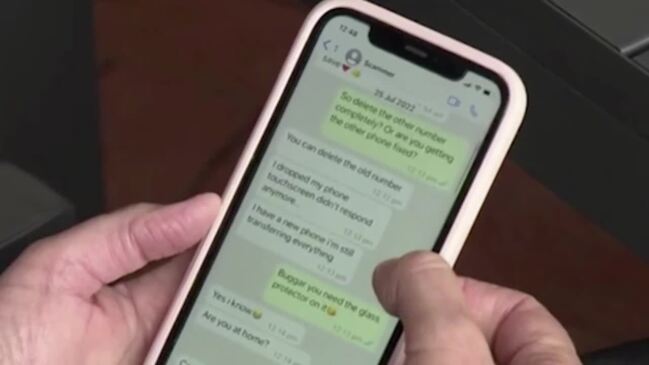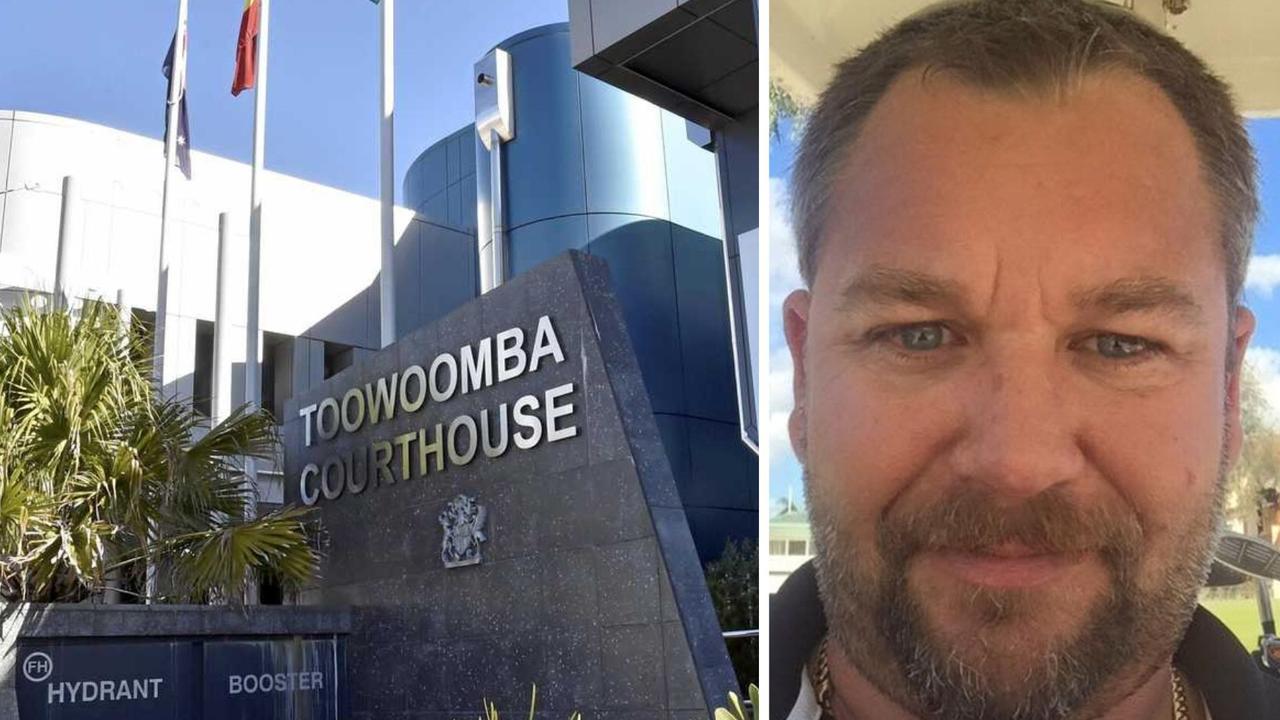Scam numbers soar as crims launch barrage of fake texts, calls, emails
Scams have reached unprecedented levels, with a Brisbane family saying how their relatives were targeted. Here’s how to spot a scam and stop them.
Police & Courts
Don't miss out on the headlines from Police & Courts. Followed categories will be added to My News.
Major telecommunication companies are reporting unprecedented scam numbers, revealing they block more than 66 million SMS scams and hundreds of millions of scam emails each month.
According to Australian Competition and Consumer Commission data, Australians reported more than 57,000 scams during the first two months of 2023, costing them a whopping $97m.
Phone call, SMS and email scams have all skyrocketed, with Scamwatch reporting a new highly sophisticated banking scam using state-of-the-art technology that makes the caller ID appear to be a bank’s legitimate phone number.
Telstra said it had blocked almost 332 million unwanted monthly emails, and nearly 230 million SMS scams since introducing its “cleaner pipes” initiative last April.
Telstra chief information and security officer Narelle Devine said the telco was also currently blocking 10 million scam calls a month and tens of millions of malicious website domains. “This technology is still evolving, and it won’t catch everything, so it’s important everyone remains vigilant and alert to the rise in scam activity,” she said.
Meanwhile, TPG Telecom blocked almost half a billion SMS scams last year, while Optus blocked 23 million texts and 288 million calls.
Optus vice-president of regulatory and public affairs Andrew Sheridan said Optus continued to block around 250,000 scam SMS texts each day. “Most commonly scam SMS (texts) impersonate known brands, attempting to induce the receiver to take an action, such as clicking a link,” he said.
Brisbane couple Bec Smart and Andrew Kingaby both noticed an increase in scam emails, and receive the Australia Post SMS scam message “every week or so”.

Ms Smart said she actively warns her older family members of the various SMS and email scams so they don't click on any phishing links.
“Someone copied my nan’s Facebook account and started scamming all of her friends, and my family; all the ones who weren’t so young, they all got sucked into it,” she said.
“You sort of do need to send out those texts to people to warn them not to open this or that.”
Mr Kingaby said he recently came close to falling victim to a scam after a scammer called him pretending they were his internet provider and asked him to download a software app that would give them control over his computer.
During 2022, Australians lost an astonishing $568m to scams, including $169m stolen via SMS and phone scammers.
Queenslanders were most vulnerable to relationship and fake dating scams, costing them an estimated $26.8m.
There were over 74,500 reports of phishing scams in 2022, which saw an increase of more than 469 per cent compared to 2021, resulting in $24.6m in reported losses.
“We know of a man who lost over $500,000 after receiving a call from someone claiming to be from a major bank’s security department, wanting to know if a payment had been authorised,” ACCC Deputy Chairwoman Catriona Lowe said.
“It is critical to remember that no matter how legitimate the call or message seems, a bank won’t ask you to urgently transfer funds.,” she said.

What to do if you’ve been scammed:
- If you feel at any time your ID may have been compromised, please reach out to IDCARE – Australia and NZ national identity and Cyber support service. IDCARE is an independent organisation that provides free support for those impacted by scams or fraud.
- Immediately contact your financial institution to put a hold on your bank accounts. The Government provides information on how to manage this.
- Change all your passwords immediately.
- Change your impacted passport, drivers licence or Medicare number to help thwart any attempt at identity theft.
- Make use of free credit reports which allows you to see whether anyone has tried to get credit in your name – taken out a loan, signed up for a new mobile service, or ordered a new credit card, as some examples. Implement a credit freeze if necessary.

ACCC and Telstra tips to avoid scams:
- Pay attention to typo or grammatical mistake in text message. Delete the message and do not respond.
- Remain vigilant and be sceptical of any unexpected communication. Contact the organisation on their official channels, not through the contact details in the message.
- Do not reply to the message. Delete and block the number.
- Never click on links in unsolicited messages.
- Do not authorise payment or provide the confirmation code if you are unsure of the transaction or payment.
- Use secure Wi-Fi. Be careful about sending and receiving confidential information across a public Wi-Fi networks – it‘s easier for criminals to intercept it.
- Turn on multi-factor authentication wherever it is available – but especially for important accounts like banking and email.
- If you feel you are being pressured on a call or in communications to share personal identification or banking / financial information, end the call and call the represented organisation on their official number.
Additional tips to help protect yourself online:
- Remain sceptical of unexpected communications
- No matter if it appears to be from a company you use and trust, and regardless of whether it is an email, text message, or phone call. If in doubt, double-check by reaching out to the company using contact details from their official website, or their app if they have one.
- Use strong and unique passwords with Multi-Factor Authentication (MFA)
- Make each password a unique phrase. A sentence is more secure and often easier to remember (“I hate egg sandwiches!“). Never reuse passwords. Consider using a password manager to store, manage, and even generate long, complex and unique passwords for you. And most importantly, turn on multi-factor authentication – this will protect you if someone is able to steal or guess your password.
- Keep your devices updated
- Protect your devices by making sure the latest iOS, MacOS, Android or Windows updates are applied. Many modern devices will automatically check for updates and apply them and do the same for apps downloaded from official app stores – so make sure you have automatic updates turned on.
- Be mindful of what you share on social media
- Limit the amount of personal information you share publicly online like your birthday, address, or photos that identify your location, or those of family and friends. Scammers often use information they can find out about you online to make their scams more convincing.




